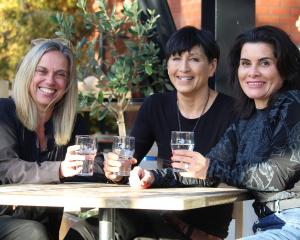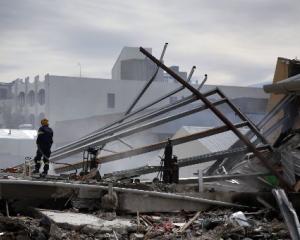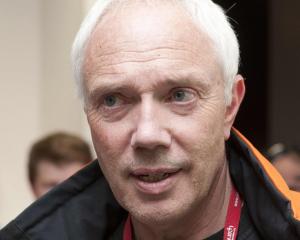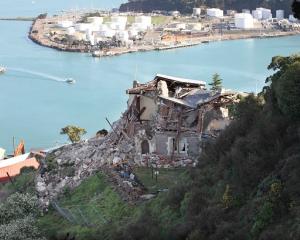Delta Utility Services was well placed to help in the rebuilding of Christchurch after the February 22 earthquake, Dunedin City Holdings chairman Paul Hudson said yesterday.
Responding to a question from the Otago Daily Times, Mr Hudson said Delta had 81 permanent staff in Christchurch - a major part of the Dunedin City Council-owned company.
"We have a lot of people well placed to help on the ground."
After the September earthquake, Delta had sent staff from Dunedin and Central Otago to support those in Christchurch and the company was doing the same this time.
The management team would decide which work was commercial and which could be classified as voluntary.
Many of the Christchurch Delta staff had family and friends who needed help.
Reimbursement was significantly less important than providing immediate help.
Delta provides a wide range of services, including solutions to water, gas and electricity suppliers, electrical services, environmental services, civil contracting and asset management.
Mr Hudson also released the results for city holdings for the six months ended December 31.
Revenue increased 6% in the period to $117.7 million and the profit, after tax of $3.6 million was paid, increased to $5.2 million from $4.9 million in the previous corresponding period.
The company paid an unchanged $1.5 million dividend to the DCC, along with $3.8 million in interest.
Mr Hudson said part of the increase in after-tax profit was because of a small increase in the valuation of the forests but, overall, the result had been achieved despite an increase in tax paid.
"This satisfactory result has been achieved because of the diversity in the city holdings portfolio.
"The local investments have been affected by lack of activity in the national economy, but the export commodity business of City Forests has really benefited from the ongoing strong economic growth in Asia."
Building development in the Central Otago region and the number of new connections for Aurora Energy remained well below the levels seen before the global financial crisis, he said.
Similarly, there had been no growth in the throughput of electricity over the Dunedin and Central Otago networks.
Delta, in a flat market, had produced a solid, if lower, result compared with last year.
The New Zealand forestry industry had shown signs it was emerging from a difficult period, Mr Hudson said.
A high proportion of the logs exported by City Forests was destined for Korea and prices in the Korean market had risen to reflect prices in China.
"This has encouraged an increase in the rate of production from the forests and a sizeable increase in the contribution made by City Forests to both group profit after tax and cash flow."
One of the more disappointing aspects for the half-year was the generally poor tourism season in and around Dunedin, he said.
There had been fewer free and independent travellers and, in particular, visitor numbers from the United States and European markets had been down.
Dunedin had been fortunate to have had an improvement within the cruise-ship sector to assist returns, but even that market had changed, Mr Hudson said.
Although there was an increase in cruise-ship passengers, they appeared not to have the spending capacity of previous years.
American visitor numbers had decreased, the Australian market had increased and the prices being offered to fill the cruises were making it attractive for a different type of traveller.
Passengers were travelling to the city by bus but were returning to the ship for lunch because they had already paid for it.
Some were doing half-day coach trips but not to the same extent as in previous years.
The immediate outlook for the local economy was "reasonably flat", Mr Hudson said.
"The board believes that due to the benefit from the wide range of investments within its portfolio, the group will trade profitably for the second half of the year."






